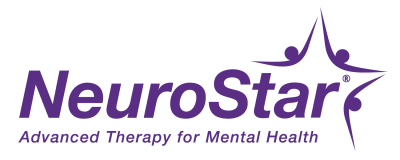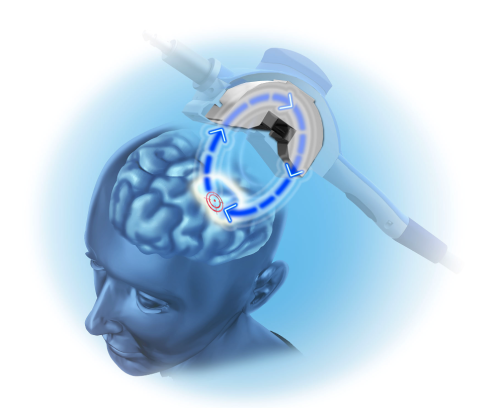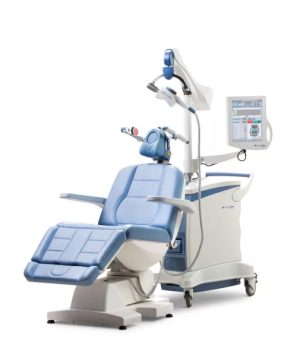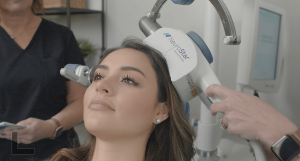
Neurostar TMS is an FDA-cleared treatment process for depression, and it is covered by many insurance companies as a way to treat Major Depressive Disorder. Neurostar TMS is especially effective for patients who have medication-resistant depression.
“if Anti-depressants and therapy haven’t worked the APA (American Psychiatric Association) recommends TMS for the treatment of Major Depressive Disorder.”
A landmark study on the effectiveness of antidepressants (STAR*D Study) showed that the likelihood of achieving remission from depression from antidepressants declined with each successive medication trial. Less than 30% of individuals achieved remission with their first medication. By the fourth medication, only 7% were able to obtain remission from their depression.
The study also found that side effects and discontinuation of the medication increased with each medication tried. While almost 9% of those studied stopped their first medication due to negative side effects, over 41% stopped the fourth medication they tried as a result of negative side effects.

By gently stimulating the areas of the brain that are underactive with depression, TMS increases the brain activity that is necessary to fight depression. Our brains rely on very important chemicals called neurotransmitters to generate many of the functions that are essential to not be depressed or anxious. Neurotransmitters, like serotonin and dopamine, carry messages across different parts of the brain.
Neurotransmitters are associated with many things, including attention and mood regulation. Dopamine and serotonin are two neurotransmitters that are specifically associated with depression. Dopamine makes you feel alert, focused, motivated, and happy. Serotonin helps you sleep well, it helps your memory work well, it helps your sex life, and it helps you feel calm, relaxed, and happy.
No matter what you might try to do to fight your depression and anxiety, your brain has to have healthy levels of these neurotransmitters and they have to be circulating through your brain. Healthy neurotransmitter functioning is essential!
A depressed brain may have unhealthy levels of neurotransmitters, and less neural activity—meaning that the neurotransmitters aren’t moving around and carrying their messages. This is associated with the symptoms of depression, such as sadness, despair, hopelessness, and lack of motivation. TMS uses gentle magnetic pulses to stimulate neurotransmitter activity.
Getting the neurotransmitters moving helps alleviate symptoms of depression by allowing serotonin and dopamine to do their job of helping us be healthier and feel happier! Furthermore, depression makes it uniquely difficult to engage in behaviors that can help with healthy neurotransmitter functioning, such as sufficient sleep, moderate exercise, and healthy nutrition.
TMS’s ability to get neurotransmitters going, thus alleviating depressive symptoms, can also help patients develop and continue in healthy habits that can further enable healthy neurological functioning.
Treat depression without taking a pill! TMS is a non-invasive and non-medication approach to the treatment of depression, anxiety, OCD, bipolar disorder, chronic pain, and more. The American Psychiatric Association (APA) recommends psychotherapy and an antidepressant for the treatment of Major Depressive Disorder (MDD). When individuals fail to receive adequate relief from therapy and medication, or when they are unable to tolerate the side effects of antidepressants, the APA recommends TMS as the next treatment for MDD depression.
Unfortunately, this isn’t what normally happens. All too often, we keep trying medication after medication instead of trying something new. If you are tired of doing more of the same to fight your depression, hoping that somehow you will start getting different results, now is the time to try this state-of-the-art treatment.

If you have tried traditional therapy and at least two different medications for your depression, it may be time to try something new. Depression affects over 18 million people every year in the U.S. In 2017, Utah had the highest rates of depression in the country. This epidemic is requiring us to search out different treatment options.
TMS is much more effective than medications and, unlike more invasive approaches like ECT, TMS does not require anesthesia or hospital stays. Most people can easily fit the 20 minute treatment into their busy lives. You can drive yourself to and from the office and immediately return to all of your normal activities following treatment.

With over a 90% success rate in our depression treatment, we know what it takes to get you better. Our providers and staff are ready to do what it takes to get you better. Contact us today to get a TMS Consultation.
321 North Mall Drive Building VW, Suite 101
St. George, Utah 84790
